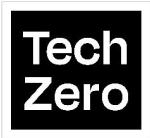The Federal Buy Clean initiative represents a transformative shift in how the federal government approaches procurement. It aims to reduce the environmental impact of materials used in public construction and infrastructure projects. The initiative requires the consideration of embodied emissions. This incorporates greenhouse gas (GHG) emissions associated with extraction, production, transport, and manufacturing of the material. One of the most effective tools to calculate these emissions is a Life Cycle Assessment (LCA) to ensure policy compliance.
What is an LCA?
A Life Cycle Assessment (LCA), or Life Cycle Analysis, is a systematic approach to evaluating the environmental impacts associated with a product throughout its entire life cycle, from raw material extraction to manufacturing, transportation, usage, and disposal. LCAs provide a holistic view of a product’s carbon footprint and other environmental consequences.
By quantifying impacts such as greenhouse gas emissions, water consumption, and energy use, LCAs enable stakeholders to make informed decisions about material selection and process improvements. This rigorous assessment is crucial for comparing products and identifying opportunities to minimize environmental harm.
What is the Federal Buy Clean Initiative?
The Federal Buy Clean Initiative is a policy framework to encourage the use of low-carbon materials in federally funded projects. By prioritizing materials with lower embodied carbon, the initiative supports the Biden administration’s broader climate goals, like net-zero emissions by 2050.
The program is designed to target high-impact sectors, such as steel, concrete, glass, and asphalt production. These materials contribute significantly to industrial emissions. Through the initiative, the federal government leverages its purchasing power to create demand for cleaner manufacturing practices and innovative low-carbon materials.
Federal-State Buy Clean Partnership
The Federal-State Buy Clean Partnership builds on the federal initiative by collaborating with state governments to harmonize procurement standards and reporting practices for state-funded projects. This collaboration ensures consistency across jurisdictions and amplifies the impact of Buy Clean policies. States such as California and Washington, have been early adopters, helping to set the stage for broader adoption nationwide.
Buy Clean California Act (BCAA): The BCAA focuses on reducing emissions from structural steel production, concrete reinforcing steel, flat glass, and insulation by limiting the global warming potential of the materials on public works projects.
Buy Clean Buy Fair (BCBF): Washington state’s policy requires state agencies and higher education institutions to report the environmental impact of concrete, wood, and steel products for construction and renovation of state-owned buildings.
Ensuring Compliance with Buy Clean Requirements?
Life Cycle Assessments (LCA’s) are integral to meeting the Federal Buy Clean requirements. These assessments allow manufacturers to:
Measure Embodied Carbon: LCAs quantify the carbon emissions associated with material production, a key metric for compliance.
Provide Environmental Product Declarations (EPDs): EPDs, based on LCAs, serve as standardized documents that communicate a material’s environmental performance.
Enable Comparisons: LCAs provide a framework for comparing materials, allowing procurement teams to prioritize options with lower environmental impacts.
Demonstrate Transparency: Through LCAs, manufacturers can showcase their commitment to sustainability and regulatory compliance.
By mandating LCAs, the Federal Buy Clean initiative drives the adoption of cleaner technologies and fosters a culture of accountability within supply chains.
Benefits of the Federal Buy Clean Initiative
The Federal Buy Clean initiative delivers a range of economic, environmental, and societal benefits:
Reduction in Carbon Emissions: By targeting industrial materials, the initiative addresses one of the largest sources of greenhouse gas emissions.
Market Transformation: The initiative incentivizes manufacturers to adopt cleaner technologies, accelerating innovation in low-carbon materials.
Economic Opportunities: Domestic industries can gain a competitive edge by meeting growing demand for sustainable materials.
Alignment with Climate Goals: The initative supports national and international commitments to combat climate change.
To date, the Federal Buy Clean Initiative has driven over $2 billion in investments toward low-carbon construction materials like concrete, steel, and asphalt. This can significantly reducing greenhouse gas emissions across federal projects. It has also spurred job creation and encouraged 100+ suppliers to provide Environmental Product Declarations (EPDs), increasing transparency and accountability in material production. These efforts modernize infrastructure while supporting sustainable U.S. manufacturing.
Key Takeaways
The Federal Buy Clean initiative is a transformative policy that leverages government purchasing power to drive demand for low-carbon materials. Targeting emissions-intensive industries such as steel, concrete, and asphalt aligns with national climate goals and accelerates innovation in cleaner technologies. Additionally, the Federal-State Buy Clean Partnership fosters collaboration for consistent standards and reporting practices across jurisdictions. This is amplifying the initiative’s impact nationwide.
Life Cycle Assessments (LCAs) to understand and manage the environmental impacts of materials is an essential tool for meeting requirements. By measuring metrics like carbon emissions and energy use, LCAs enable informed decision-making and compliance with the Federal Buy Clean requirements. They also provide the foundation for Environmental Product Declarations (EPDs), which are critical for demonstrating transparency and sustainability.
This Federal Buy Clean initiative delivers benefits beyond environmental impact. It supports economic growth by giving competitive advantages to industries adopting sustainable practices. It is also positioning the U.S. as a leader in global efforts to combat climate change. By incentivizing cleaner technologies and driving transparency in supply chains, the Federal Buy Clean initiative is reshaping the market for materials and creating a pathway to a sustainable future.
Next Steps: Meeting Sustainability Requirements
CarbonBright AI’s LCA solutions help organizations accurately measure emissions and meet regulatory standards—at a fraction of the time and cost of traditional methods.
Contact us to get started!
